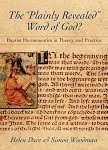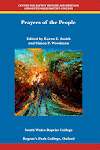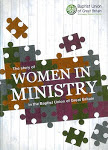A sermon for Bloomsbury Central Baptist Church
27th February 2022
On Thursday this week,
the world took another step into the dark.
As we watch the assembled military might of Russia
roll out across the Ukraine,
and as civilians flee their homeland seeking safety across borders,
echoes of the darkest hours of the two world wars are hard to ignore.
And as we gaze across our continent
to those whose lives have descended into the darkness of war,
I can hear an echo of the opening question from our reading today:
‘Rabbi, who sinned, these Ukrainians or their parents,
that they should lose from their lives the light of freedom and peace?’
And I’m sure we would want to echo in reply the words of Jesus,
that neither they nor their parents sinned.
But before we go too far down the path of absolving ourselves of prejudice
by blaming it all on the sins of President Putin,
I do wonder whether we, collectively as a nation,
need to do a little exercise in removing the log from our own eye
before pointing our fingers at the blindness we have identified
in the eye of another (cf. Matt. 7.5).
Like the Pharisees around Jesus,
it is so easy for us to become blinded to our own failures,
whilst having clear sight of the failures of others.
It is too soon, I think, for a proper analysis
of the causes of the current conflict in the Ukraine,
and our focus at this time must surely be
on prayers for peace and on actions of mercy;
but history usually reveals that conflict is the result
of multiple failures of diplomacy, relationship, and trust;
and it is certainly true that the rapid and strategic absorption
of soviet bloc countries into NATO
has created at least part of the context for the events of this last week.
And more broadly, if we consider our nation’s response
to the vast people displacements from other recent conflicts
such as Syria and Afghanistan,
we have a shameful track record in welcoming those in need to our country,
with the few who do find their way to our shores
often then mired in mountains of red tape,
rather than welcomed to their new lives
in a land of British care and opportunity.
It’s almost as if people believe that these victims somehow deserve their plight,
maybe for having been born in the wrong country,
or for speaking the wrong language,
or for having the wrong skin colour.
The sad truth is that prejudice and nationalism run deep in our society,
and they surface in times of conflict.
Now is the time for the followers of Christ
to make their presence and voice known,
offering a different narrative than the blame-game we will read in our media.
For example, the Baptist Standard reported on Friday that
‘Even while bombs fell around them,
Baptists in Ukraine made plans to care for their neighbors
who were displaced by a Russian military invasion, …
planning to establish “centers of hope”
at churches in each of the nation’s six westernmost regions
to shelter displaced families and individuals.
They also are mobilizing churches along the most likely evacuation routes
to provide care for people journeying from east to west.
“These are places where travelers can get food, rest,
wash their clothes and receive spiritual care…”
The European Baptist Federation—with BWA support—
is working closely with the Baptist Union of Ukraine
to coordinate humanitarian relief.’[1]
I am offering these observations about the events of the past few days
not to make us feel guilty,
nor to undermine our opposition to Russia’s aggression,
nor to minimise our solidarity with the people of the Ukraine;
but rather to remind us that the darkness in the world
is not simply ‘over there’,
in the hearts of aggressors and the lives of their victims.
Rather, the darkness of sin, violence, prejudice, greed, and selfishness
is over here too, and it lurks in our hearts,
in our society, and in our actions.
The whole world is under the shadow of deep darkness,
and we long for a light to shine in the darkness,
exposing the deeds of the night,
banishing our blindness to the plight of others,
and lighting the path to a better way and a better day.
Let’s hear from John’s gospel again:
Jesus answered, [“Neither did this one nor his parents sin.
But in order that the works of God might be manifest to you,
it is necessary for us to work the works of the one who has sent me
while it is day; night is coming, when no one is able to work.][2]
As long as I am in the world, I am the light of the world.”
The lesson here is clear:
Firstly, we cannot, should not, must not blame others for their suffering.
No one ‘deserves’ to live under the shroud of darkness in this world,
although many end up doing so.
And then, secondly, the works of God are made known in the world
as the people of Christ, the body of Christ,
shine the light of his presence
through their works of justice, mercy, and peace.
The story of the healing of the man born blind is a sign of something beyond itself:
it points to the presence of Christ in the world
through his followers as a light to the nations,
shining into the darkest places
to bring deeds of evil into the light.
And whether this is in the Ukraine or here in London,
the people of Christ, those who have already ‘seen the light’,
are called to mirror the behaviour of the man born blind
by courageously bearing witness to the light,
despite the opposition that such actions will inevitably generate.
Being a witness to the light of the world won’t win you any popularity contests,
because the powers of darkness will resist any attempt
to draw their deeds into the light of scrutiny.
And this was as true at the time John’s gospel was written
as it is in our world of the twenty-first century.
So if we rewind back to the first century, to the original readers of John’s gospel,
we discover that they were people who knew full well what it was
to face opposition for their faithful witnessing to the light of Christ in the world.
The early Christian communities of the late first century
were challenging the ethnic boundaries of Judaism
by welcoming Gentiles into their midst,
and this had caused them to have to separate themselves
from the worshipping life of the synagogue.
Their opposition was the Jewish leaders of the synagogues,
who opposed, on the grounds of religious purity,
the message of a messiah for all peoples.
So when John’s gospel casts ‘the Jews’ and ‘the Pharisees’
as the opposition to Jesus and his followers,
we have to remember the context in which this gospel was shaped.
Some have used these passages shamefully,
to cast a wedge between Christianity and Judaism;
and the irony of this, of course, is that the intent is precisely the opposite:
the opposition here are not ‘all Jews’,
but precisely the kind of religious leaders
who prize purity over relationship.
Those Christians who use this passage to declare Judaism obsolete
fall into the very trap that the Pharisees are critiqued for,
as they opposed Jesus for his healing on a Sabbath.
The light of Christ, John’s gospel proclaims, is for everyone, at any time:
it cannot be constrained to one ethnicity, one religious group,
or one ‘way of doing things’.
Rather it shines in the world,
casting light into darkness
and leaving those who have wedded themselves to dark deeds
with nowhere to hide.
And so Jesus declares, ‘I am the light of the world’,
in what is the second of his seven ‘I AM’ statements that we find in John’s gospel.
But the problem with a statement such as this,
‘I am the light of the world’,
is that it’s a pretty abstract concept.
What does it actually mean for Jesus to be a light?
One of the golden rules of sermon preparation
is that the sermon has to go somewhere,
it has to have some kind of practical, real-world, application.
But the problem with Jesus declaring himself to be a light
is that it doesn’t, at least not obviously, go anywhere.
So let’s take a moment together now to unpack this,
and see if it sheds any light on the passage,
and our own lives lived in the light of it.
The first thing to notice is that, once again, Jesus is referencing the Hebrew Bible.
In Psalm 119.105 we find the famous quotation:
‘Your word is a lamp to my feet and a light to my path.’
and this is surely in the background to what Jesus says about himself
as the light of the world.
In the psalm, of course, the ‘word’ that the author had in mind
was the word of the Torah - the law of Moses.
So when Jesus declares himself to be a ‘light’ to the world,
he is doing two things:
firstly, he is casting himself, once again, as the fulfilment of Torah,
something we’ve seen him do before
when he spoke of himself as both the bread of life, and the water of life;
and secondly, he is declaring that the light he shines
will be more than a light to the people of Israel,
it will in fact be a light that illuminates the whole world.
This is why the Jewish leaders make a point of comparing Jesus
rather disparagingly with Moses (v.28-29).
They get the point, and they don’t like it one bit.
But Jesus isn’t just declaring himself as the new Moses,
the embodiment of Torah for all.
Rather, he then takes decisive action
to make real the implications of this declaration in the world.
And this is where we come to the healing of the man born blind,
the ‘lucky beggar’ as he is sometimes known!
And here we have a bit of a problem,
because we have to make a decision as to how we are going to treat him
as we interpret his story.
Is he a sign of something beyond himself,
or is he a real person in his own right?
The temptation is to spiritualise him,
to see him as a metaphor of the way Jesus brings light into the darkness
and restores the spiritual sight of those whose inner eyes are blinded to truth.
And this is a legitimate interpretation,
it is, after all, what John’s gospel does with him.
John offers him as an exemplar,
as a model disciple,
whose eyes are opened to see the world differently,
and who then embarks on a journey of faith
to a new way of living in the world
and a new relationship with his saviour Jesus.
We can see this in the way his restored ‘sight’
then leads to a growth in his spiritual ‘insight’.
Near the beginning of his story (v.11-12),
when he is asked who has healed him,
he says simply ‘the man called Jesus’,
but then goes on to say that he doesn’t know where to find Jesus.
But just a few verses later (v.17) his insight has grown,
and the next time he is questioned, he says that he knows Jesus to be a ‘prophet’.
And then a bit further on still (v.33),
he tells the Jewish leaders that Jesus who restored his sight
is ‘the one sent from God’.
And then finally, a bit further on still (v.35-38)
he acknowledges Jesus as the ‘son of man’, as his ‘Lord’,
and worships him as God with a statement of absolute belief.
Clearly, John’s gospel wants all those who encounter the light of Christ in their lives
to make this same journey into faith and belief,
and the man born blind is offered as a metaphor for each of us,
as the darkness of our spiritual blindness gives way to something glorious,
as we discover freedom from the sin and selfishness that oppress us,
and as we enter into a new relationship with God through Christ.
The problem here, though, is that in doing so he reduces this man to a metaphor,
he is instrumentalised in the cause of the gospel.
And the reason this is problematic
is that, fictional or not, he still exists within this text as a person,
and as such he invites us to see ourselves in him,
and to see him in us.
And so if he is reduced to a means to an end,
then that creates a world where the same can be said of others.
Some of us have previous experience of the kind of Christianity
which sees people as a means to an end,
where we are told to make friends with non-Christians
for the sole purpose of ‘converting’ them,
rather than as an expression of God’s love in Christ for all people.
And it gets even more problematic
when the nature of his disability is considered.
His congenital blindness is used as a metaphor for sin,
and his journey into sight after his encounter with Jesus
becomes a journey from enslavement to sin into freedom from oppression.
It gets even worse when you then take into account the NRSV translation of vv.3-4
which suggests the reason for the man’s blindness
was so that God’s work might be revealed in him.
In other words - his life of disability was ‘so that’ God might heal him
to create a nice metaphor for the spiritual journey of others.
Thankfully we can dispense with the poor translation problem,
the Greek in no way suggests that this man was born blind for this reason,
and the translation we have used today
more accurately captures the original intent
by offering no reason for his disability,
and instead locating the revelation of God’s works not in the man’s blindness,
but in the transformation of those around him.
In this, we come closer to the social model of disability,
where a physical impairment is only a disability
if the social word of the impaired person disables them.
I have preached a couple of times fairly recently on the theology of disability,
and these can be accessed via our website.
I’ll make sure the links are in my blog post for today’s sermon.[3]
I would also suggest, if you want to think further
on the issue of how the church responds to those with disabilities,
that you have a listen to the sermon by Revd Glen Graham,
a Baptist Minister who was himself born blind,
which he gave here at Bloomsbury as part of our Inclusive Church series,
and again I’ll put the link on my blog.[4]
But I want to make the point that we cannot entirely gloss over
the personal effect on this man,
of his encounter with Jesus.
And we need to take seriously the warning against seeing anyone as a means to an end,
particularly where faith is concerned.
Too many people with sickness or disability have been told
that it is somehow their fault that they have remained un-healed,
possibly because of some sin in their life, or because of their lack of faith.
And we need to hear Jesus saying, clearly and plainly,
‘Neither this man nor his parents sinned’.
Sometimes, life just is what it is,
and resists any attempt to assign blame or cause.
Some people are born blind, they just are.
Some people get sick and die early, they just do.
Some people were born in Ukraine and now live in a war zone,
it’s not their fault.
Some people are refugees, seeking a new life in our country,
and they don’t deserve it.
The work of God is not revealed in some magical reversal of fortune,
but rather in the works of those who follow the light of Jesus,
shining that same light into the world
to challenge all those who perpetuate oppression, prejudice, and violence.
As Jeffrey John puts it:
‘In Christ the fullness of God’s light broke into the darkened world,
conquered death, and offered us a new way of relating to God.
The gospel is [therefore] above all a Gospel of restored relationship.’[5]
Our calling, then, as the people of God,
is to avoid the blindness of the Pharisees,
who determinedly resisted seeing the truth of God’s revelation
that was before their very eyes.
And rather, instead, to praise the One who breaks the darkness
with a liberating light.
The Kingdom by R. S. Thomas
It’s a long way off but inside it
There are quite different things going on:
Festivals at which the poor man
Is king and the consumptive is
Healed; mirrors in which the blind look
At themselves and love looks at them
Back; and industry is for mending
The bent bones and the minds fractured
By life. It’s a long way off, but to get
There takes no time and admission
Is free, if you purge yourself
Of desire, and present yourself with
Your need only and the simple offering
Of your faith, green as a leaf.
[1] https://www.baptiststandard.com/news/world/baptist-churches-in-ukraine-mobilize-for-ministry/
[2] Translation by Jo-Ann Brant
[3] https://www.bloomsbury.org.uk/on-forgiveness-and-healing/
https://www.bloomsbury.org.uk/antilectionary-do-miracles-still-happen/
[4] https://www.bloomsbury.org.uk/inclusion-and-disability/
[5] Jeffrey John, the Meaning in the Miracles, p.138.















